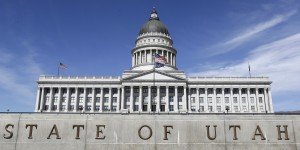SALT LAKE CITY — A bill that would create local student success partnerships passed the Senate Education Committee 7-0 Tuesday, Jan. 26, and will go to the full Senate for consideration.
Sen. Ann Millner, R-Ogden, presented SB67, a bill that would create The Partnerships for Student Success Grant Program, which would focus on improving education for low-income students at a local level rather than the state level. The proposal includes a grant for $5 million that would be distributed to 10 feeder systems in rural northern Utah communities.

“These partnerships are really focused on outcomes and making sure we are making a difference for these kids. They do require for people to be in constant communication, to share accountability, and to work together for the shared goal of our children,” Senator Millner said.
Some experiments involving grant money have proved successful in the Weber School District. Graduation rates and reading proficiency assessments jumped to a much higher level after schools received funds. Proponents of the bill, Principal Gina Butters from Roy High School and JD Talbert from Woodrow Wilson High School, both received this one-time money supply and testified that their students’ education greatly benefited.
South Salt Lake Mayor Cherie Wood also spoke in support of the bill and presented the committee with an example of a local student who benefited from a partnership grant.
“Juan Garcia found himself in trouble with the law in junior high and was ordered to complete community service hours, little did he know the impact the service would have on his life,” Wood said. “After completing these hours, was also able to volunteer his time in a partnership after-school program. With the help of dedicated teachers, Juan was able to graduated high school.”
In addition, since 2013 the graduation rate of low-income high schools participating in experiment grant programs has risen from 58 percent to 68 percent
Utah State Superintendent Dr. Sydney Dixon said, “We want to break the chain of poverty within rural communities,” Dixon said.
“This really makes sense,” Sen. Howard A. Stephenson, R-Draper, said. “This local kind of tribal feeling and community is a lot more powerful than having a state agency come into the communities.”




